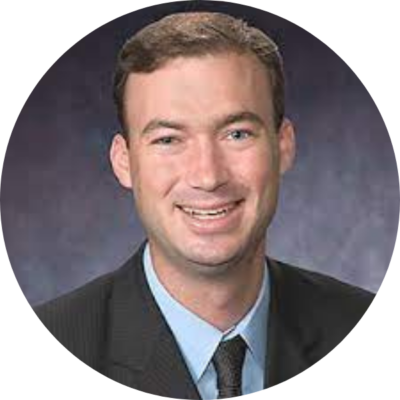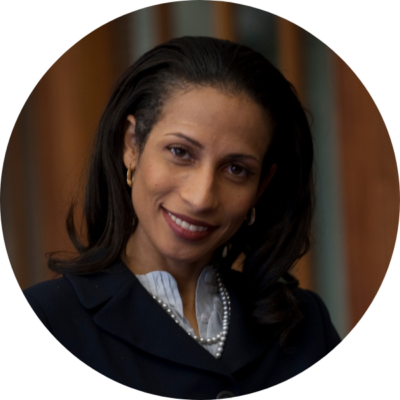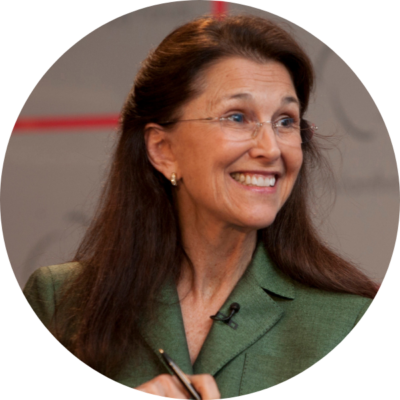Who is Giving? Who is Getting? Giving Trends in the Pandemic Era
Giving Trends in the Pandemic Era
In the period between the Great Recession and the Pandemic, more money was given in America—but by far fewer donors. As many as 20-million everyday donors dropped out of giving. How concerned should we be if the longtime American tradition of giving becomes the sole province of the ultra-wealthy?
The Generosity Commission, a project of the Giving Institute, asked the question of how these recent trends have impacted community-based and social service organizations across the US. A research consortium of the Urban Institute, American University, and George Mason University took the challenge and launched Nonprofit Trends and Impact, a nationally representative, long-term panel study, offering fresh data with some good news and some concerning.
At the same time, Una Osili of the Lilly Family School of Philanthropy led a groundbreaking study, Everyday Donors of Color, exploring the motivations and practices of donors of color.
The Aspen Institute’s Program on Philanthropy and Social Innovation (PSI) in partnership with the Generosity Commission, a project of the Giving Institute, hosted a virtual discussion highlighting this new research which surfaces important findings on the nonprofit sector and philanthropy across diverse communities in the United States.
PANELISTS
 Lewis Faulk
Lewis Faulk
Associate Professor, School of Public Affairs Department of Public Administration and Policy, American University
Lewis Faulk is an Associate Professor of Public Administration and Policy in the School of Public Affairs at American University. Dr. Faulk is a Fellow of the Metropolitan Policy Center at American University, Affiliate Faculty of the Management Department at Kogod School of Business, Affiliated Faculty of American University’s Center for Innovation, Editor in Chief of Nonprofit Management and Leadership, and Research Fellow of the Center for Organizational Research and Design at Arizona State University.
Dr. Faulk’s research focuses on nonprofit management, nonprofit finance and entrepreneurship, and the intersection of nonprofit organizations and public policy. His current research investigates how nonprofit organizations respond to neighborhood gentrification and resident displacement, the effects of competition in the nonprofit sector, determinants of early organizational success, new public policies and policy tools that support social innovation, and factors that influence foundation grant-making, organizational capacity, financial health, and performance.
Dr. Faulk has a Ph.D. in Public Policy with a concentration in Nonprofit and Public Management from the joint Ph.D. program in Public Policy at Georgia State University and the Georgia Institute of Technology. He received the 2012 Gabriel G. Rudney Memorial Award for Outstanding Dissertation in Nonprofit and Voluntary Action by the Association for Research on Nonprofit Organizations and Voluntary Action. His research has been published in the Journal of Policy Analysis and Management, Journal of Public Administration Research and Theory, Public Administration Review, Public Management Review, Journal of Behavioral Public Administration, International Public Management Journal, Public Performance & Management Review, Nonprofit and Voluntary Sector Quarterly, Nonprofit Management and Leadership, VOLUNTAS: International Journal of Voluntary and Nonprofit Organizations, Foundation Review, and Nonprofit Policy Forum.
 Mirae Kim
Mirae Kim
Associate Professor, Nonprofit Studies Schar School of Policy and Government, George Mason University
Mirae Kim is an associate professor of Nonprofit Studies at the Schar School of Policy and Government, George Mason University. She is also serving as a co-editor of the Nonprofit Policy Forum and enjoying her time as a visiting scholar at Independent Sector for 2021-2022.
Her research interests include nonprofit financial management, the role of nonprofits in civil society, nonprofit arts management, cultural policy, and interorganizational partnerships. Most recently, her research has focused on how nonprofits respond to increasing racial and ethnic diversity; for instance, she is currently examining ethnic minority disadvantages in the nonprofit funding market as well as the prevalence of nonprofits serving mostly people of color and immigrants. For one of her articles, Kim was awarded the 2018 award for the outstanding article in the NVSQ. In addition, she has been leading the “Nonprofit Organization Research Panel” project. Mirae Kim created NORPanel project in order to provide valuable information for nonprofit practitioners while producing much-needed data for the nonprofit research community.
Prior to joining George Mason, Mirae Kim was a faculty member at the Andrew Young School of Policy Studies (2017-2020) and Harry S Truman School of Public Affairs, University of Missouri (2014-2017). She earned her PhD in public management from Rutgers School of Public Affairs and Administration and a master’s degree from Carnegie Mellon University. Her research has been widely published in the Public Administration Review, Nonprofit and Voluntary Sector Quarterly, Nonprofit Management and Leadership, American Review of Public Administration, Administration & Society, Review of Public Personnel Administration, and Journal of Public Budgeting, Accounting & Financial Management.
 Una Osili
Una Osili
Chair in Philanthropy and Associate Dean for Research and International Programs, Lily Family School of Philanthropy
Una Osili is the Efroymson Chair in Philanthropy and the Associate Dean for Research and International Programs at the Lilly Family School of Philanthropy, the world’s first school dedicated to the study of philanthropy. She also serves as Dean’s Fellow for the Mays Family Institute on Diverse Philanthropy. An internationally recognized scholar in economics, Osili leads the research and publication of Global Philanthropy Tracker and the Global Philanthropy Environment Index, which are prominent sources of global development and social innovation data trends that collaborate with over 100 experts in 79 countries.
Osili has provided expert testimony at the Joint Economic Commission and United States Senate Foreign Relations Committee on philanthropy, international development, and the role of the public sector. She is a consultant with the Federal Reserve Bank of Chicago and has worked on cross-sector initiatives on financial inclusion. At IU, she leads the research and publication of Giving USA, the annual report on American philanthropy, and is the Founder of Generosity for Life, a digital platform providing new data tools for financial decision making in the area of philanthropy and social impact. She chairs the School’s signature research project, the Philanthropy Panel Study, the most comprehensive study of the generosity of American families over time. Osili received her bachelor’s degree in economics from Harvard University and her Master’s and Ph.D. from Northwestern University.
MODERATED BY
 Jane Wales
Jane Wales
Vice President of the Aspen Institute and Executive Director of the Program on Philanthropy and Social Innovation (PSI)
Chair of the Generosity Commission
Jane Wales is Vice President of the Aspen Institute and Executive Director of its Program on Philanthropy and Social Innovation (PSI). The program works to inform and maximize the impact of social actors from the charitable and private sectors so that they can help solve societal problems and steward shared resources together. In so doing, these actors help build social capital and advance citizen agency, contributing to our society’s capacity to adapt, solve and self- govern. PSI enhances the efficacy of these changemakers and matchmakes among them through its leadership seminars for emerging non-profit leaders and social entrepreneurs, its consensus-building convenings of foundation CEOs and individual donors, its issue-specific philanthropy conferences and its work to advance transparency, including policies for making “open” the data generated by and gathered on the nonprofit sector. PSI’s thought leadership has focused on the nexus of civic engagement, citizen agency and democracy. A senior manager, Jane also leads a 12-program consortium of Aspen Institute programs that work to strengthen American democracy.
Jane is the founder of the Global Philanthropy Forum and its regional affiliates in Africa and Brazil, and the former host of the nationally syndicated National Public Radio interview show WorldAffairs. Previously, Jane served in the Clinton Administration as Special Assistant to the President and Senior Director of the National Security Council. She simultaneously served as Associate Director of the White House Office of Science and Technology Policy, where her office was responsible both for advancing sustainable economic development, through science and technology cooperation, and for developing policy for securing advanced weapons materials in the former Soviet Union. In the Carter Administration, Jane served as Deputy Assistant Secretary of state.
In the philanthropic sector, Jane chaired the international security programs at the Carnegie Corporation of New York and the W. Alton Jones Foundation, and she directed the Project on World Security at the Rockefeller Brothers Fund. From 2007 to 2008, she served as acting CEO of The Elders, chaired by Archbishop Desmond Tutu and founded by Nelson Mandela. Jane is Chair of the Board of FSG, a nonprofit consultancy, and a member of the board of directors for the Center for a New American Security, OpenCorporates, Water Unite, and IDInsight. She is Chair of the Generosity Commission.